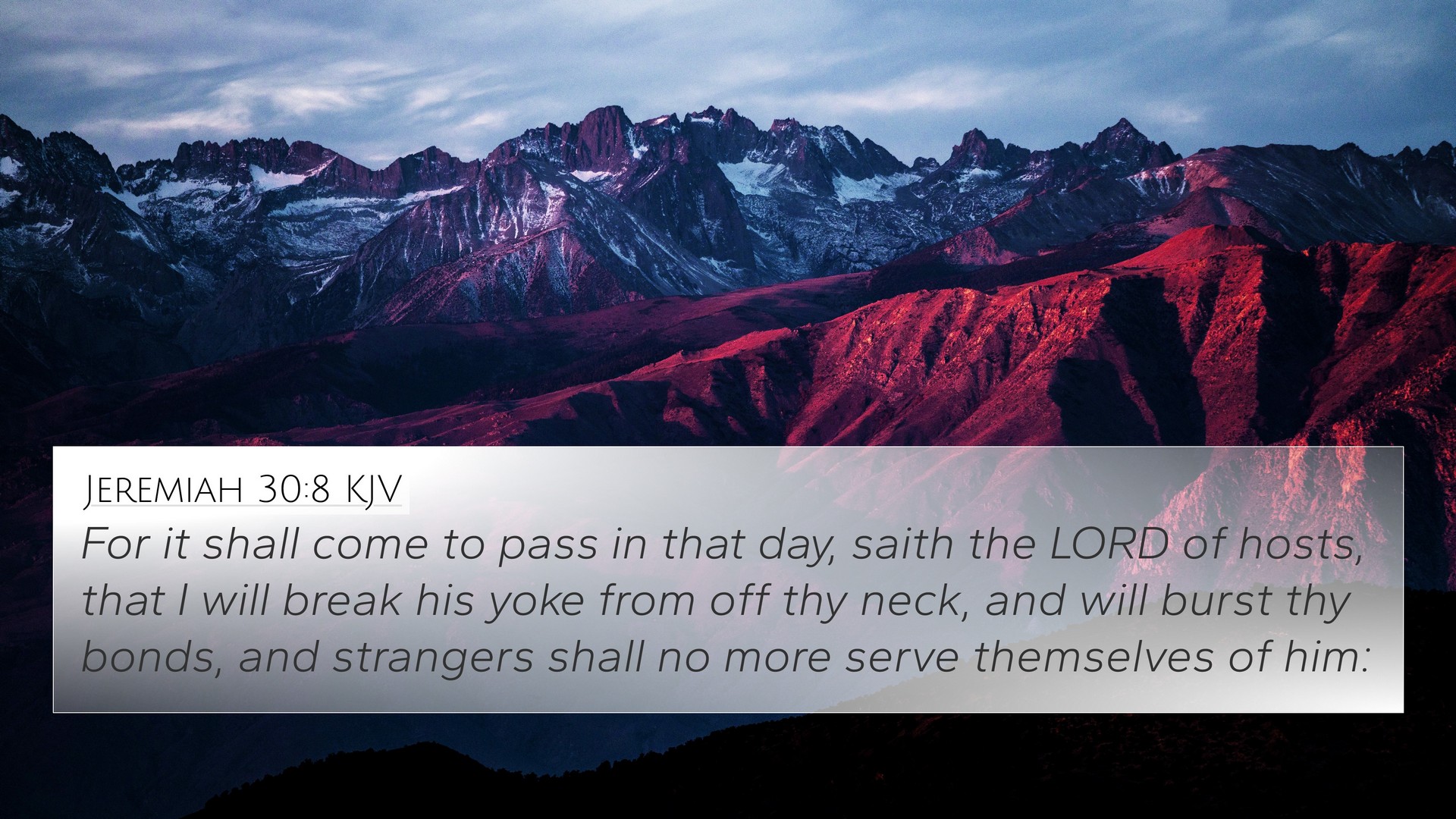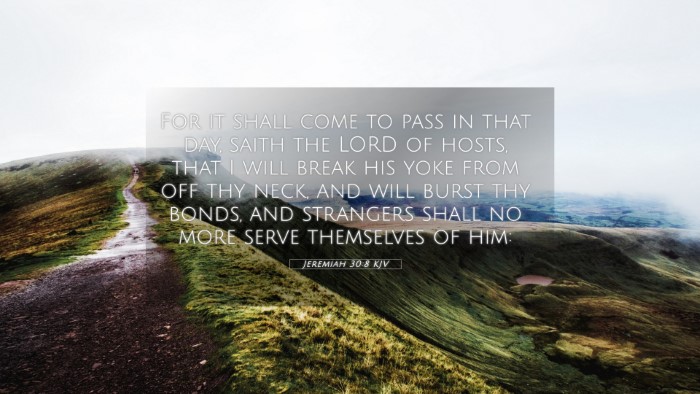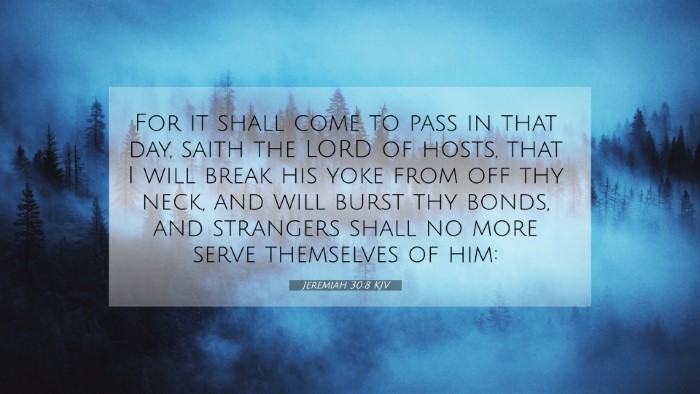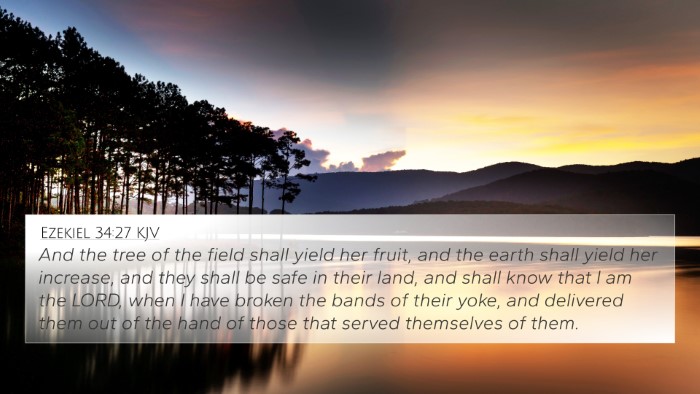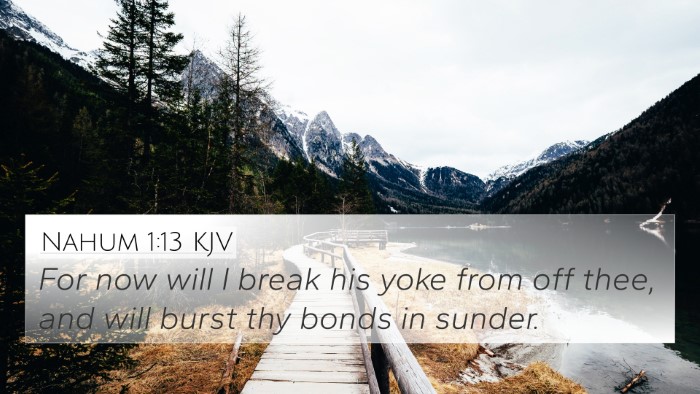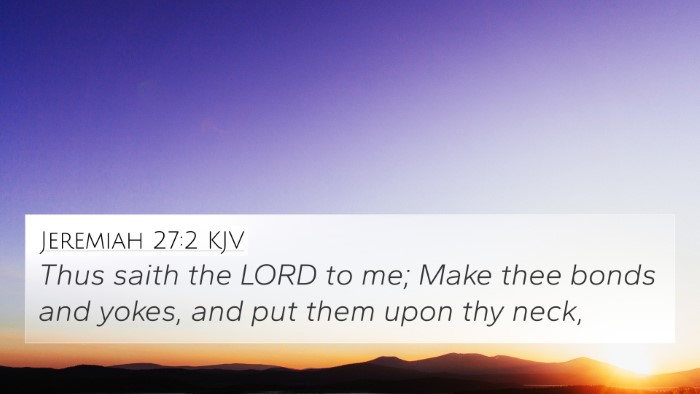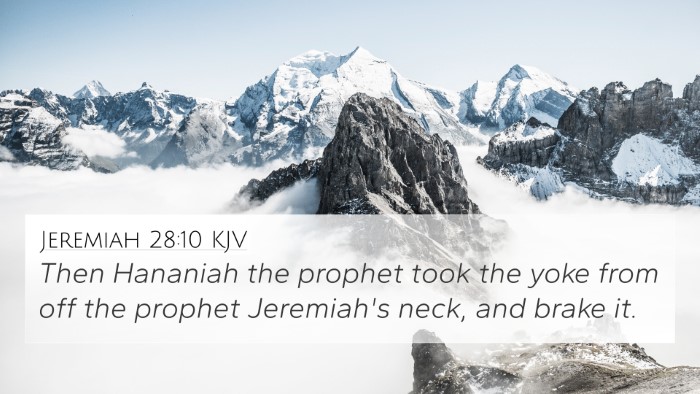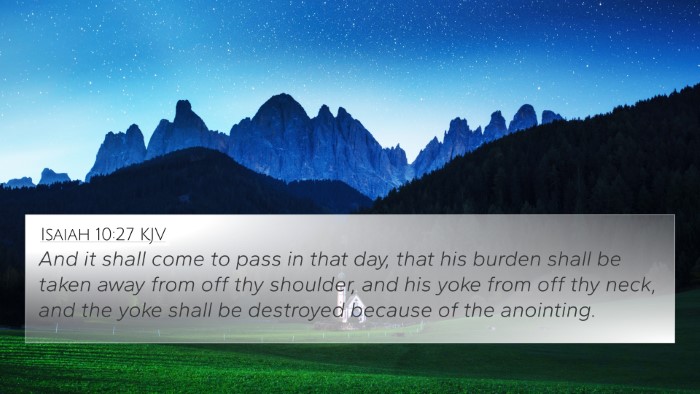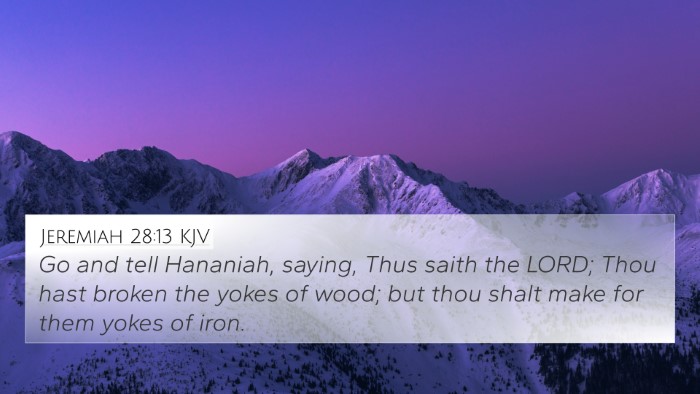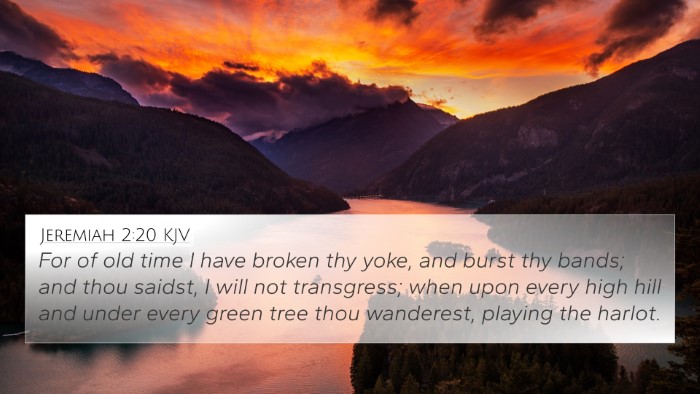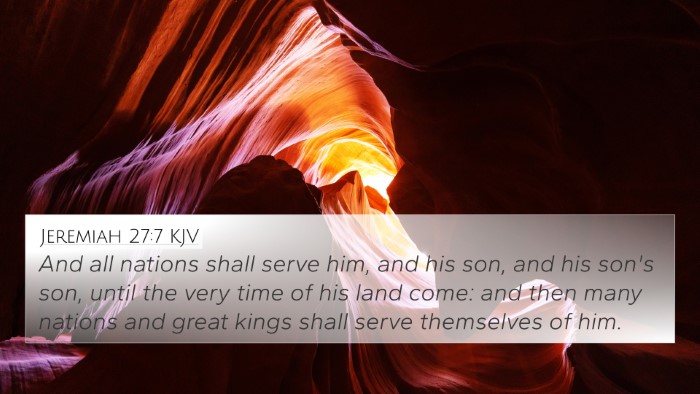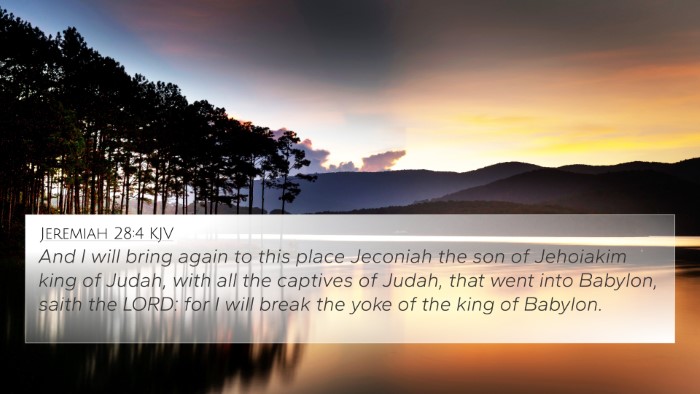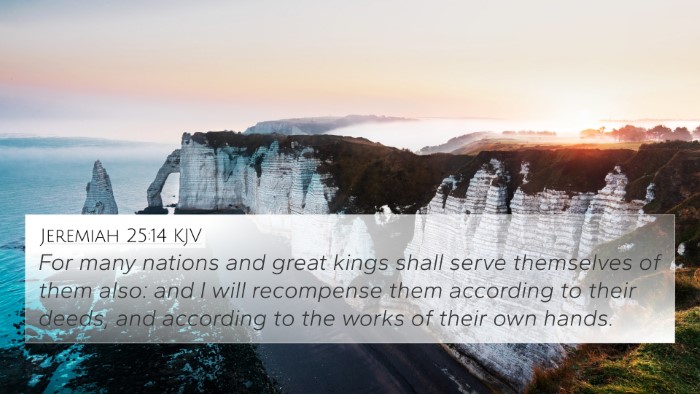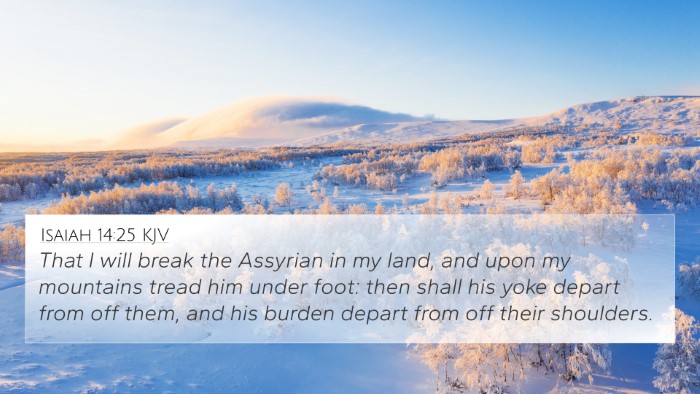Understanding Jeremiah 30:8
Jeremiah 30:8 presents a rich tapestry of meaning that reflects hope and restoration for Israel. This verse states:
"And it shall come to pass in that day, saith the Lord of hosts, that I will break his yoke from off thy neck, and will burst thy bonds, and strangers shall no more serve themselves of him."
Contextual Analysis
The Book of Jeremiah is primarily concerned with the themes of judgment and restoration. At this point in the text, God promises deliverance for Israel, emphasizing a future where they will no longer be oppressed. Both Matthew Henry and Adam Clarke echo this sentiment, highlighting the transition from bondage to freedom.
Verse Meaning and Significance
In this section, we will delve into various aspects of the verse's meaning.
- Deliverance from Oppression: The "yoke" symbolizes oppression, a common metaphor in prophetic literature. God’s promise to break the yoke signifies liberation from captivity. This deliverance is not limited to a physical sense but extends to spiritual and emotional freedom.
- Divine Intervention: The phrase "I will break" indicates God’s active involvement in the liberation of His people. Both Albert Barnes and Matthew Henry highlight the assurance that God alone can provide this freedom, emphasizing divine power and sovereignty.
- The Role of Strangers: The reference to "strangers" signifies the foreign nations that would oppress Israel. This verse serves as a declaration of God's intent to end their dominion, allowing Israel to reclaim their identity and purpose.
- Future Restoration: The phrase "that day" points to eschatological themes, suggesting a day of reckoning and restoration. Adam Clarke draws parallels to New Testament references about the ultimate fulfillment of God’s promises through Christ.
Inter-Biblical Connections
This verse has several cross-references that help illuminate its meaning. Here are some key connections:
- Isaiah 10:27: "And it shall come to pass in that day, that his burden shall be taken away from off thy shoulder, and his yoke from off thy neck." This verse parallels the theme of liberation.
- Isaiah 14:3: "And it shall come to pass in the day that the Lord shall give thee rest from thy sorrow, and from thy fear, and from the hard bondage wherein thou wast made to serve." This reinforces the hope of freedom from suffering.
- Micah 4:4: "But they shall sit every man under his vine and under his fig tree; and none shall make them afraid." A vision of peace and security for Israel.
- Ezekiel 34:27: "And the tree of the field shall yield her fruit, and the earth shall yield her increase, and they shall be safe in their land." This portrays the restoration of Israel as a nation blessed by God.
- Galatians 5:1: "Stand fast therefore in the liberty wherewith Christ hath made us free, and be not entangled again with the yoke of bondage." This connects the Old Testament promise of freedom to the New Testament message of spiritual liberation through Christ.
- Romans 8:21: "Because the creature itself also shall be delivered from the bondage of corruption into the glorious liberty of the children of God." This highlights the universal hope for liberation.
- John 8:36: "If the Son therefore shall make you free, ye shall be free indeed." Christ’s fulfillment of freedom aligning with God’s promise in Jeremiah.
Thematic Connections
Understanding Jeremiah 30:8 involves recognizing broader themes present throughout scripture. These include:
- Hope and Restoration: The consistent biblical narrative of God’s promise to restore His people is seen throughout both the Old and New Testaments.
- Spiritual Freedom: The theme of breaking free from sin and spiritual bondage resonates deeply in Christian theology, linking back to the liberation prophesied in Jeremiah.
- Divine Sovereignty: A reminder that God has control over nations and their fates, emphasizing trust in His plans.
Tools for Bible Cross-Referencing
To further explore the connections within the Bible, consider using various tools and methods:
- Bible Concordance: A resource to find words and themes across different verses.
- Bible Cross-Reference Guide: Books such as “The Treasury of Scripture Knowledge” can enhance your understanding of verse connections.
- Cross-Reference Bible Study: Journaling or mapping out verses as you read can help identify themes and connections.
- Comprehensive Bible Cross-Reference Materials: Websites and app resources that provide thematic cross-references for studying.
Conclusion
Jeremiah 30:8 holds profound implications for understanding God's character and His intentions for His people. As we consider this verse and its surrounding context, we see a reflection of hope, restoration, and the promise of divine liberation. Through careful examination, we can utilize cross-referencing and thematic connections to enrich our understanding of this significant biblical promise.
